Films from the country "tchecoslovaquie", sorted by revenue
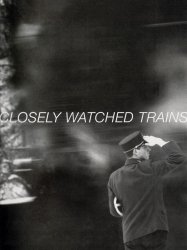
Closely Watched Trains (1966)
, 1h32Directed by Jiří Menzel
Origin Tchecoslovaquie
Genres Drama, War, Comedy, Comedy-drama
Themes Transport films, Rail transport films, Political films
Actors Václav Neckář, Vlastimil Brodský, Josef Somr, Jiří Menzel, Jiří Kodet, Josef Abrhám
The young Miloš Hrma, who speaks with misplaced pride of his family of misfits and malingerers, is engaged as a newly trained station guard in a small railway station during the Second World War and the German occupation of Czechoslovakia. He admires himself in his new uniform, and looks forward, like his prematurely-retired railwayman father, to avoiding real work. The sometimes pompous stationmaster is an enthusiastic pigeon-breeder with a kind wife, but is envious of the train dispatcher Hubička's success with women. Miloš holds an as-yet platonic love for the pretty young conductor Máša. The experienced Hubička presses for details of their relationship and realizes that Miloš is still a virgin.

The Shop on Main Street (1965)
, 2h5Directed by Ján Kadár, Elmar Klos
Origin Tchecoslovaquie
Genres Drama, War
Themes Films about religion, Political films, Films about Jews and Judaism
Actors Ida Kamińska, František Zvarík, Juraj Herz, Ivan Palúch
During World War II, a mild-mannered Slovak carpenter Anton "Tóno" Brtko (Jozef Kroner) is offered the chance to take over the sewing notions store of an old, near-deaf Jewish woman Rozália Lautmannová (Ida Kamińska) as a part of the enactment of an Aryanization regulation in the town. As Tóno attempts to explain to Mrs. Lautmannová, who is oblivious of the world outside and generally confused, that he has come to be her supervisor and owner of the store, Imrich Kuchár (Martin Hollý, Sr.), a Slovak opponent of Aryanization, steps in and reveals to Brtko that the business itself is less than profitable, as Lautmannová herself relies on donations. The Jewish community then offers the amiable Brtko a weekly payment if he does not give up the store, which would otherwise be given to a new, possibly ruthless Aryanizer. Tóno accepts and lets Mrs. Lautmannová believe he is her nephew who has come to help in the store. Their relationship grows, until the authorities round up the town's entire Jewish population for transport, and Tóno finds himself conflicted as to whether he should turn in the senile Mrs. Lautmannová, or hide her. When the woman finally becomes aware of the "pogrom" all around her, she panics, and in attempting to silence her, Tóno accidentally kills her. The realization devastates him, and he hangs himself.

La route mène au Tibet (1955)
Origin Tchecoslovaquie
Genres Drama
Themes Films about writers, Films about religion, Films about Tibet, Films about Buddhism
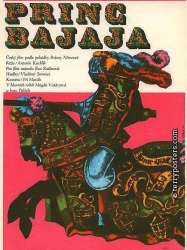
Prince Bajaja (1971)
, 1h21Directed by Antonín Kachlík
Origin Tchecoslovaquie
Genres Fantastic, Fantasy
Actors Magda Vášáryová, Ivan Palúch, Karel Fiala, Josef Hlinomaz, Petr Čepek
Le héros de ce conte de fées populaire est un jeune prince qui, après la mort de ses parents, part dans le monde. Au cours de ses voyages, il rencontre un cheval magique qui parle et tombe amoureux de la belle princesse Slavna. Sur les conseils de son cheval, il entre en service comme jardinier muet du château. Selon les sons qu'il émet, ils commencent à l'appeler Bajaja. Cependant, lorsque un dragon apparaît et demande à la princesse ou de détruire tout le royaume, Bajaja met son armure et sauve la princesse sur son cheval. Mais, il tient une promesse qu'il a faite au cheval et s'éloigne de l'endroit. Le chevalier noir en profite et sous la menace, il force la princesse à jurer que c'est lui qui l'a sauvée .
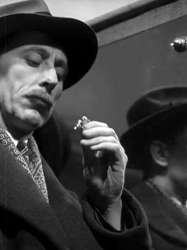
Directed by Svatopluk Innemann
Origin Tchecoslovaquie
Genres Drama, Crime
Actors Jindřich Plachta, Zvonimir Rogoz, Theodor Pištěk, Gustav Hilmar
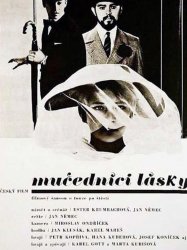
Martyrs of Love (1967)
, 1h11Directed by Jan Němec
Origin Tchecoslovaquie
Genres Comedy, Fantasy, Romance
Themes Films about magic and magicians
Actors Lindsay Anderson, Jitka Cerhová, Ivana Karbanová, Jan Hammer, Helena Anýzová
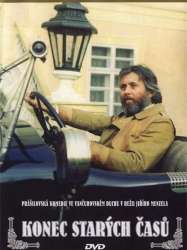
The End of Old Times (1989)
, 1h37Directed by Jiří Menzel, Vladislav Vančura
Origin Tchecoslovaquie
Genres Comedy
Actors Josef Abrhám, Marián Labuda, Jan Hartl, Rudolf Hrušínský, Stella Zázvorková
Tchéquie, 1918. La nouvelle Assemblée nationale a nommé Stoklasa administrateur du château de Kratochvile. Bien que sans racines aristocratiques, il a de l'argent et tente d'acheter le château. Pour impressionner ses voisins et les élus locaux, il les invite à une grande partie de chasse. Sans y être invité, arrive un homme qui prétend être le duc Alexej.
 , 1h36
, 1h36Directed by Věra Chytilová
Origin Tchecoslovaquie
Genres Comedy
Actors Oldřich Navrátil, Jiří Kodet, Bronislav Poloczek, Bruno Hübner, Marek Vašut
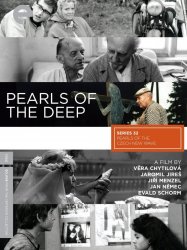
Pearls of the Deep (1966)
, 1h45Directed by Věra Chytilová, Jiří Menzel, Evald Schorm, Jaromil Jireš, Jan Němec
Origin Tchecoslovaquie
Genres Comedy
Actors Jiří Menzel
Ce film est composé de cinq courts métrages réalisés chacun par un réalisateur différent, Self-service Univers (Automat Svet) de Věra Chytilová, Romance (Romance) de Jaromil Jireš, La mort de M. Baltazar (Smrt pana Baltazara) de Jiří Menzel, Les Imposteurs (Podvodníci) de Jan Němec et La Maison de joie (Dum radosti) d'Evald Schorm.
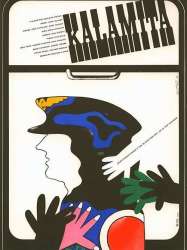
Calamity (1982)
, 1h36Directed by Věra Chytilová
Origin Tchecoslovaquie
Genres Comedy
Actors Bolek Polívka, Dagmar Bláhová, Zdeněk Svěrák, Bronislav Poloczek, Zdeněk Dítě, Ondřej Havelka
Honza Dostál arrête ses études pour se consacrer à des choses utiles.

Something Different (1963)
, 1h30Directed by Věra Chytilová
Origin Tchecoslovaquie
Genres Drama, Comedy
Actors Jiří Kodet, František Filipovský
Au début des années 1960, les réalisatrices étaient bien plus nombreuses dans le bloc de l’Est que de l’autre côté du Rideau de Fer, à l’instar de Věra Chytilová, figure de la Nouvelle Vague tchécoslovaque. "Quelque chose d’autre", réunit deux parcours de femmes, l’un fictif et l’autre réel : celui de la gymnaste et future médaillée d’or Eva Bosáková, qui joue ici son propre rôle.
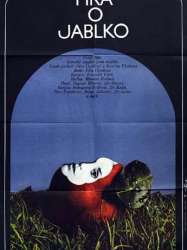
The Apple Game (1978)
, 1h40Directed by Věra Chytilová
Origin Tchecoslovaquie
Genres Drama, Comedy, Comedy-drama
Actors Dagmar Bláhová, Jiří Kodet, Jiří Menzel, Jiří Lábus, Jitka Cerhová

Ballad-Singer (1932)
, 1h41Directed by Svatopluk Innemann
Origin Tchecoslovaquie
Genres Drama
Actors Karel Hašler, Čeněk Šlégl, Gustav Hilmar, Jaroslav Marvan
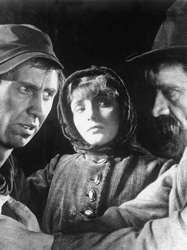
Battalion (1927)
Directed by Přemysl Pražský
Origin Tchecoslovaquie
Genres Drama
Themes Théâtre, Films based on plays
Actors Karel Hašler, Eman Fiala
Trompé par sa femme, un avocat se met à boire au Bataillon, un bistrot des bas-fonds. Il tente d'aider les gens avec ses compétences juridiques et essaie de devenir un organiste d'église, mais l'alcool a le dessus...
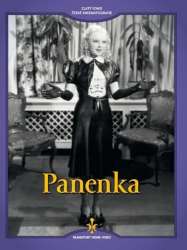
The Doll (1938)
Origin Tchecoslovaquie
Genres Science fiction, Comedy
Actors Ferenc Futurista, Vera Ferbasová, Eman Fiala, Theodor Pištěk
 Connection
Connection